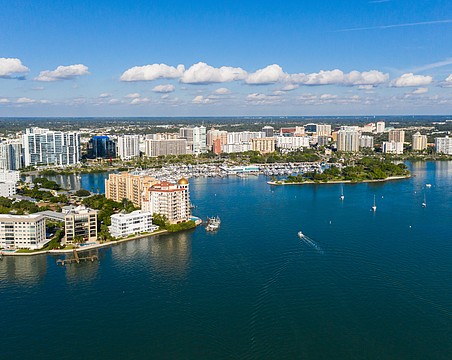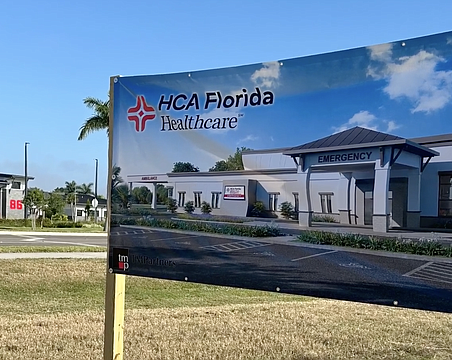To little surprise in Florida's development and business communities, Senate Bill 360 — the growth management bill passed this pring — has garnered a lot of squawking from the usual bellyachers. It's predictable: They are the Greenies and Malthusians who think government should erect nearly impenetrable obstacles and prescribe every step we are allowed to take (and not take), especially when it comes to sticking a shovel in the ground to build.
If you actually take the time to read the bill (Note: inject caffeine beforehand), you should be able to conclude that, yes, it makes the permitting and development process easier in high-density urban areas, but only insofar as it reduces the amount of bureaucracy a property owner/taxpayer must navigate.
Here's another way to state it: It increases your freedom.
But by only a little.
If you took all the naysayers' comments and mainstream media's reporting on S.B. 360, you get the impression lawmakers emasculated the state's Growth Management Act and opened the gates for a rush of high-rise, urban development.
Let's be clear about this: Sen. Mike Bennett, chief sponsor of S.B. 360, did good. But his bill only popped a little pimple.
Comparatively, Florida's Growth Management Act, Chapter 163 of Florida statutes, is still a cancerous tumor three times the size of the AT&T ball at Disney's Epcot. S.B. 360 doesn't even scratch the surface of this tumor. Look it up: Chapter 163. Just the part dealing with growth planning is 65,425 words of regulations.
More perspective: When you overlay the effects of the Growth Management Act since its inception in 1986, look what has happened to Florida. Yes, its population has grown extraordinarily. But when you put its growth side by side with the same extraordinary growth in, say, Texas and Georgia, there's a notable difference: The costs of housing and costs of living.
Texas and Georgia, for the most part, have remained inexpensive states in which to live. Florida, on the other hand, has transformed from a low-tax, low-regulated, low-cost, freedom-loving state to an increasingly high-regulated, high-cost, medium-tax state.
Look at the table on page 21. Houston, Dallas and Atlanta have lower costs of living than all of the Florida cities included in our comparison. And look at the median prices of homes. Except for Cape Coral/Fort Myers, which we know is the center of the foreclosure universe, housing prices in Houston, Dallas and Atlanta stand out.
Look particularly at the housing prices in 2006, just before the bubble burst. The differences between median home prices in Houston, Dallas and Atlanta compared to everywhere else are eye-popping.
This is no accident. All kinds of academic studies — i.e. “The Best-Laid Plans” by Randal O'Toole and “Zoning's Steep Price” by Edward Glaeser and Joseph Gyourko of the Cato Institute, to name just two — show how growth-management laws have made the cost of housing unaffordable in California, Seattle, New York and certainly Florida.
A University of Washington professor, Theo Eicher, found that land-use regulations in Seattle and the state of Washington added $200,000 to the cost of a $450,000 home, making it $650,000, even taking into account inflation. This adds about $1,100 a month in principal, interest and property taxes to the homeowners' bill — an amount that could be put to more productive uses were it not for the costs of regulation.
Even the Federal Reserve Bank of Dallas noted in a 2008 report: “Houston and other metros such as Dallas and Atlanta that have relatively more permissive development policies have lower housing prices than more restrictive places.”
And in O'Toole's “Best-Laid Plans,” he points out that states with the most land-use regulations and growth-management laws are more susceptible and experience more housing bubbles than states not as highly regulated.
So even though environmentalists and daily newspaper editorialists are decrying S.B. 360, and even though freedom-loving Floridians are embracing the bill's cutting of duplicative regulations from the development process for dense urban areas, it's only a start. A positive start, to be sure.
There is still much to be done to dismantle a gargantuan set of laws that actually has damaged Florida's economy and Floridians' economic well being.
As usual, there won't be much appetite in Tallahassee for dramatic reform. Tallahassee always operates in the margins. But if our economic recovery drags, which is likely, policy makers may wake up to the longstanding fact that the states whose tax and regulatory burdens are declining are always the states where the economies are growing the fastest and citizens are seeing their standard of living rise.
'Epidemic of optimism'
Notes from the field ... It's always inspiring to attend the Ernst & Young Florida Entrepreneur of the Year awards gala. This year's event in Orlando was no exception. What made it especially enjoyable was seeing Tampa Bay entrepreneurs dominate the field — four of the eight winners and the most from one region.
Favorite comment of the event: Dr. Stephen Dickey, 64-year-old founder of Doctor's Walk-in Clinic and winner of the health-services award: “Entrepreneurs are not just 20-year-olds. They're 64-year-olds, too.” ... Congratulations to Wendy Abberger, executive director of Leadership Florida. She was recognized last weekend at the organization's annual meeting for serving in her position 20 years ... Meg Crofton, president of Walt Disney World Resort, had great advice for managers in her keynote speech at the Leadership Florida convention: In times like this, great leaders “create an epidemic of optimism.”





